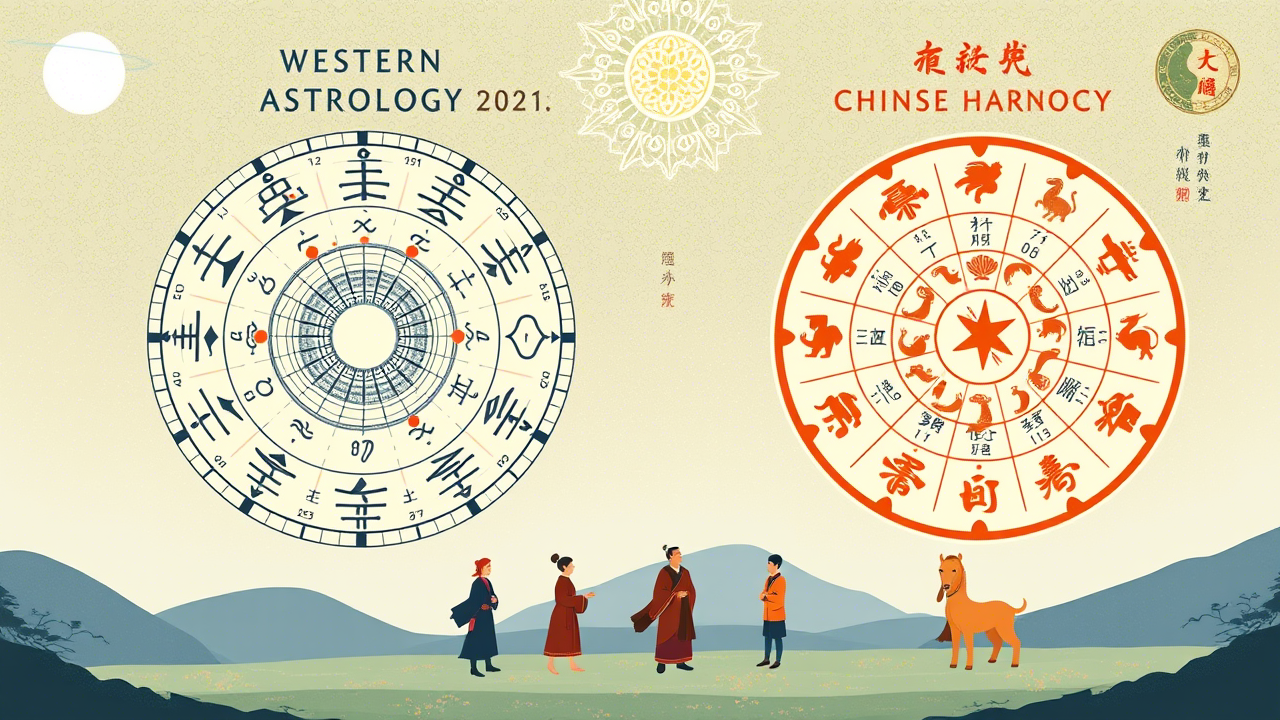Understanding the Cosmic Tapestry: A Comparative Exploration of Western and Chinese Astrology
In our quest to comprehend the mysteries of human existence, civilisations throughout history have turned to the stars for guidance and understanding. Among the most enduring and influential systems of celestial interpretation stand Western and Chinese astrology – two distinct yet equally profound approaches to decoding the cosmic language.
These ancient practices, developed independently across different hemispheres, offer remarkable insights into personality traits, life paths, and potential futures while reflecting the unique cultural perspectives and philosophical foundations of their respective societies.
The significance of these astrological systems extends far beyond mere entertainment or casual curiosity; they represent sophisticated frameworks that have shaped personal decision-making, cultural traditions, and even historical events for millennia.
While Western astrology, with its twelve zodiac signs familiar to many through daily horoscopes, has become globally recognized, Chinese astrology maintains an equally rich tradition, deeply intertwined with Chinese philosophy, medicine, and governance. Both systems continue to influence millions worldwide, serving as tools for self-discovery, relationship compatibility assessment, and life path navigation.
This exploration into the differences between Western and Chinese astrology aims to illuminate not only their technical distinctions but also their underlying philosophical principles and cultural contexts. By examining these systems side by side, we can appreciate how each offers a unique lens through which to view human nature and destiny, while recognizing their shared purpose in helping individuals find meaning and direction in life’s journey.
As we delve deeper into their characteristics, methodologies, and applications, we’ll uncover how these ancient wisdoms remain relevant in contemporary society, offering valuable perspectives on personal growth and interpersonal relationships.
The Foundations of Western Astrology: A Celestial Blueprint
Western astrology, often referred to as tropical astrology, traces its origins back to ancient Mesopotamia around 2000 BCE, evolving through significant contributions from Greek philosophers and mathematicians during the Hellenistic period. At its core lies the geocentric model, where Earth serves as the central point of observation, with celestial bodies moving through twelve distinct constellations along the ecliptic – the apparent path of the Sun across the sky.
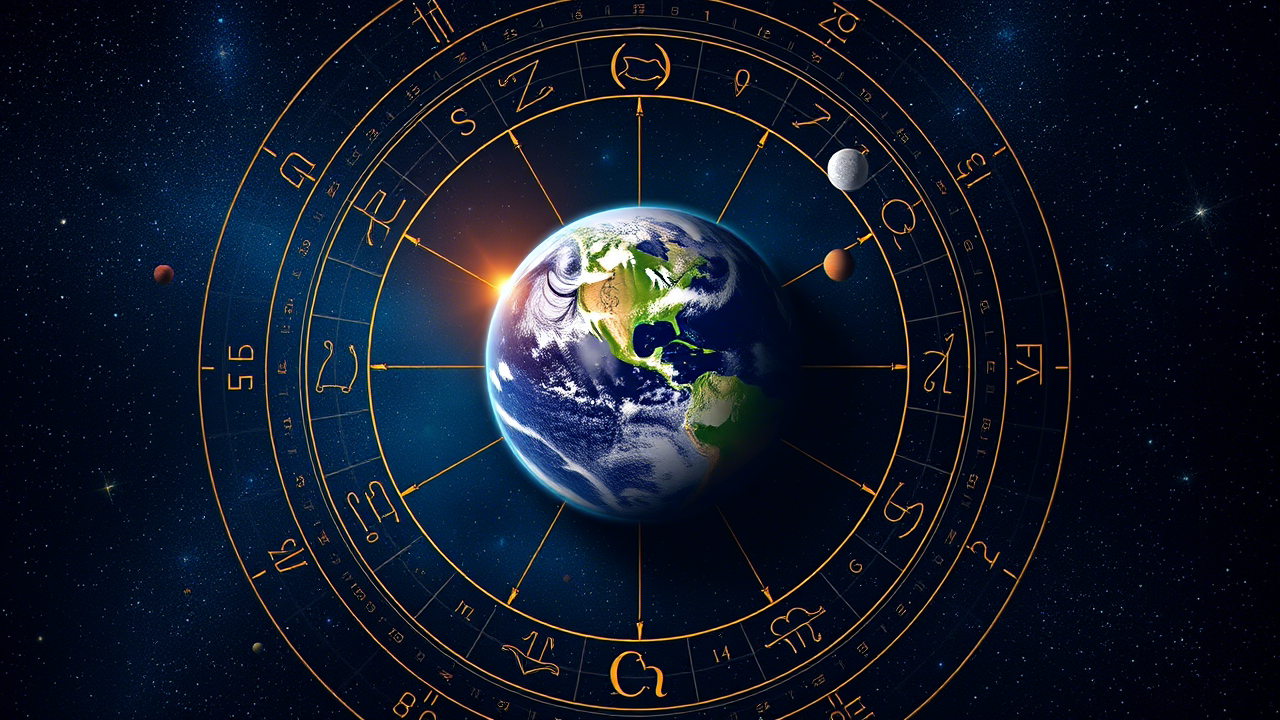
This system divides the year into twelve equal segments, each corresponding to a specific zodiac sign, beginning with Aries at the spring equinox and concluding with Pisces.
The fundamental principles of Western astrology revolve around the concept of “as above, so below,” suggesting a direct correlation between celestial patterns and human affairs. Each zodiac sign, spanning approximately 30 degrees of the ecliptic, is associated with specific elemental qualities (fire, earth, air, water) and modalities (cardinal, fixed, mutable), creating a complex matrix of personality traits and tendencies.
The positions of the Sun, Moon, and planets at the time of birth are meticulously calculated to generate a natal chart – a personalized cosmic snapshot that serves as the foundation for astrological interpretations.
The methodology employed in Western astrology relies heavily on mathematical precision and astronomical observations. Practitioners utilize ephemerides – detailed tables of planetary positions – to calculate exact coordinates and aspects between celestial bodies.
These calculations form the basis for various astrological techniques, including transits (current planetary movements), progressions (symbolic advancement of the birth chart), and synastry (relationship compatibility analysis). The system also incorporates house divisions, which segment the sky into twelve sections representing different areas of life, further refining interpretations.
Western astrology’s influence extends beyond personal readings to encompass mundane astrology (world events), electional astrology (choosing auspicious times), and horary astrology (answering specific questions).
Its structured approach, combined with centuries of documented observations and interpretations, has established it as a sophisticated system for understanding both individual and collective experiences through the lens of celestial patterns.
The Essence of Chinese Astrology: Harmony Through Cycles
Chinese astrology, deeply rooted in the country’s ancient cosmological framework, operates on fundamentally different principles compared to its Western counterpart. Originating over 4,000 years ago during the Zhou Dynasty, this system evolved alongside Chinese philosophy, particularly Taoism and Confucianism, creating a unique approach to understanding human nature and destiny.
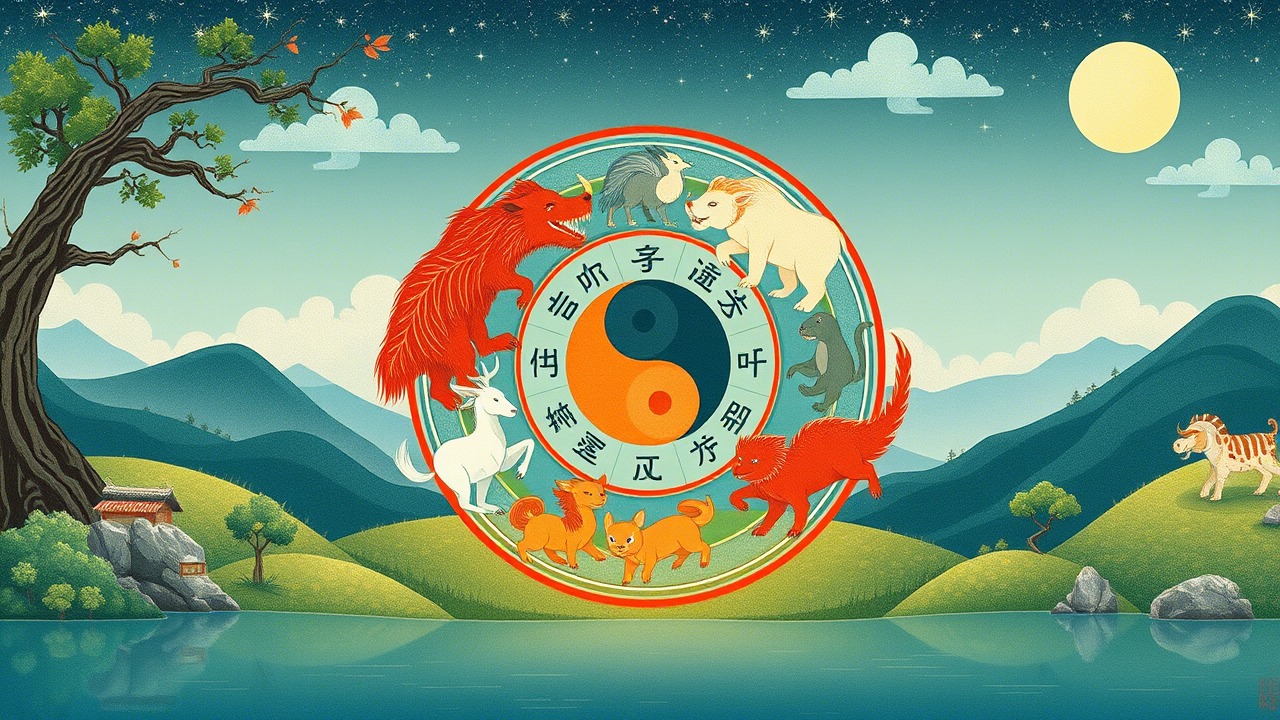
Rather than focusing solely on celestial positions at birth, Chinese astrology integrates multiple layers of cyclical patterns, including the twelve-year animal cycle, five elements (wood, fire, earth, metal, water), yin-yang polarity, and the ten heavenly stems.
At the heart of Chinese astrology lies the sixty-year sexagenary cycle, formed by combining the twelve animal signs with the five elements, resulting in a comprehensive system that repeats every six decades.
Each year, month, day, and even hour is assigned specific animal and element combinations, creating intricate four-pillar charts known as BaZi. This multi-dimensional approach allows for nuanced interpretations that consider not just one’s birth year, as commonly simplified in popular culture, but the complete temporal context of an individual’s arrival into the world.
The philosophical underpinnings of Chinese astrology reflect the traditional Chinese worldview of interconnectedness and balance. Unlike Western astrology’s emphasis on individual personality traits, Chinese astrology focuses more on harmony within relationships and alignment with natural cycles.
The twelve animal signs – Rat, Ox, Tiger, Rabbit, Dragon, Snake, Horse, Goat, Monkey, Rooster, Dog, and Pig – each embody specific virtues and challenges, representing archetypal energies that influence not only personal characteristics but also compatibility with others and suitability for various pursuits.
The five-element theory adds another layer of complexity, influencing everything from career choices to health predispositions. For instance, a person born under the Wood element might excel in creative fields, while someone aligned with Metal could demonstrate strong leadership qualities.
The interplay between these elements, combined with yin-yang dynamics, creates a sophisticated system for understanding both personal strengths and potential conflicts. This holistic approach reflects the Chinese cultural emphasis on maintaining balance and harmony within oneself and with the surrounding environment.
Furthermore, Chinese astrology integrates seamlessly with other traditional Chinese systems, such as Feng Shui and Traditional Chinese Medicine, forming a comprehensive framework for navigating life’s challenges and opportunities.
The emphasis on timing and cycles aligns closely with agricultural rhythms and seasonal changes, reflecting the agrarian roots of Chinese civilization. This deep connection to natural patterns underscores the system’s focus on adaptation and flow rather than fixed personality traits, offering practical guidance for living in harmony with life’s inevitable changes.
Key Differences Between Western and Chinese Astrological Systems
The distinctions between Western and Chinese astrology extend far beyond their surface-level differences, revealing fundamental variations in their structural frameworks and interpretative approaches. Perhaps the most immediately noticeable difference lies in their basic units of measurement: Western astrology employs a twelve-sign solar zodiac based on the Earth’s orbit around the Sun, while Chinese astrology utilizes a twelve-year lunar cycle synchronized with Jupiter’s orbit.
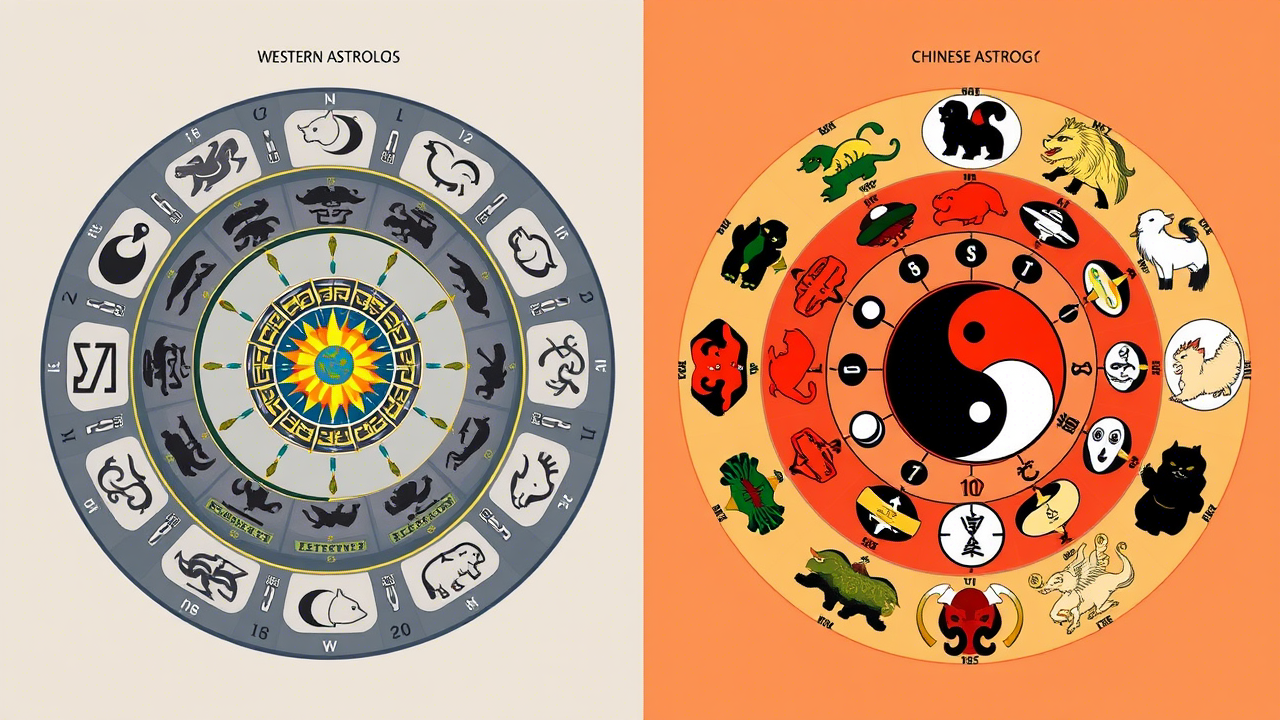
This discrepancy in time scales – days versus years – fundamentally alters how each system views human development and destiny. Western astrology focuses on precise moments of birth and subsequent planetary movements, whereas Chinese astrology considers broader life phases and generational influences.
The calculation methods themselves reflect these contrasting perspectives. Western astrology relies heavily on geometric angles and mathematical precision, calculating exact degrees of planetary positions and their aspects.
In contrast, Chinese astrology embraces a more fluid, cyclical approach, considering multiple overlapping cycles – the twelve-year animal cycle, five elements, and yin-yang polarities – that create a complex web of influences. While Western astrology generates highly individualized natal charts based on specific birth times, Chinese astrology produces BaZi charts that incorporate four pillars of information, each representing different temporal dimensions of a person’s existence.
These methodological differences manifest in markedly distinct interpretative outcomes. Western astrology tends to produce relatively fixed personality profiles based on sun signs and planetary placements, emphasizing inherent traits and psychological tendencies.
Chinese astrology, however, focuses more on dynamic interactions between elements and animals, suggesting a more malleable approach to personal development and destiny. For instance, while a Western astrologer might attribute certain characteristics to a person’s Mars placement, a Chinese astrologer would examine the interaction between their birth year’s element and current annual cycles.
The implications of these differences extend to how each system addresses life’s challenges and opportunities. Western astrology often provides specific predictions about timing and potential outcomes, using transits and progressions to forecast future events.
Chinese astrology, meanwhile, emphasizes strategic timing and alignment with natural cycles, offering guidance on when to act or remain patient. This reflects the broader cultural philosophies underlying each system: Western astrology’s linear, cause-effect approach mirrors Western scientific thinking, while Chinese astrology’s cyclical, relational perspective aligns with Eastern holistic philosophy.
Practical Applications and Cultural Significance in Modern Contexts
The practical applications of Western and Chinese astrology extend far beyond mere fortune-telling, influencing diverse aspects of modern life from personal decision-making to business strategies. In Western societies, astrology serves as a popular tool for self-reflection and relationship building, with millions consulting daily horoscopes for guidance on everything from career moves to romantic compatibility.
Professional astrologers increasingly collaborate with therapists and counselors, integrating astrological insights into mental health practices to help clients understand behavioral patterns and emotional triggers. The corporate world has also embraced Western astrology, with some companies utilizing astrological compatibility assessments in team-building exercises and leadership development programs.

Chinese astrology maintains an equally significant presence in contemporary Asian cultures, particularly in business and personal planning. Major corporations in China and surrounding regions frequently consult astrologers before making important decisions, from launching new products to signing major contracts.
The practice of selecting auspicious dates for weddings, business openings, and other significant events remains widespread, with professional date-selection experts commanding substantial fees for their services. In healthcare, Traditional Chinese Medicine practitioners often consider astrological factors when diagnosing conditions and recommending treatments, viewing them as part of the holistic assessment of a patient’s well-being.
Both systems demonstrate remarkable adaptability to modern technology, with numerous apps and online platforms offering personalized astrological readings and compatibility analyses. Social media influencers specializing in astrology have emerged as powerful voices, particularly among younger generations seeking spiritual guidance in rapidly changing societies.
However, their effectiveness varies significantly depending on the depth of analysis and the practitioner’s expertise. While superficial interpretations may provide entertainment value, truly insightful readings require extensive knowledge of the respective systems and their historical contexts.
The integration of astrology into mainstream culture has sparked academic interest in its psychological and sociological impacts. Researchers studying Western astrology have identified correlations between astrological beliefs and personality trait development, suggesting that these systems may function as self-fulfilling frameworks for personal growth.
Studies on Chinese astrology reveal similar patterns, with practitioners demonstrating enhanced awareness of cyclical patterns in nature and human behavior. Both systems contribute to cultural preservation, maintaining connections to ancestral wisdom while adapting to contemporary needs and scientific understanding.
Despite their ancient origins, both Western and Chinese astrology continue to evolve, incorporating modern astronomical discoveries and psychological insights. Professional organizations in both traditions have established rigorous certification processes to ensure practitioners maintain high standards of knowledge and ethical conduct.
This institutionalization has helped legitimize astrology in academic and professional circles, though debates about its scientific validity persist. Nevertheless, the enduring popularity of both systems suggests they fulfill important psychological and social functions, providing frameworks for understanding identity, relationships, and life’s challenges in ways that complement modern scientific perspectives.
Navigating the Cosmic Compass: Choosing Your Astrological Path
As we’ve explored the intricate tapestry of Western and Chinese astrology, it becomes evident that both systems offer profound insights into human nature and destiny, albeit through distinctly different lenses. Western astrology, with its precise mathematical foundations and focus on individual personality traits, provides a structured framework for understanding personal psychology and timing significant life events.
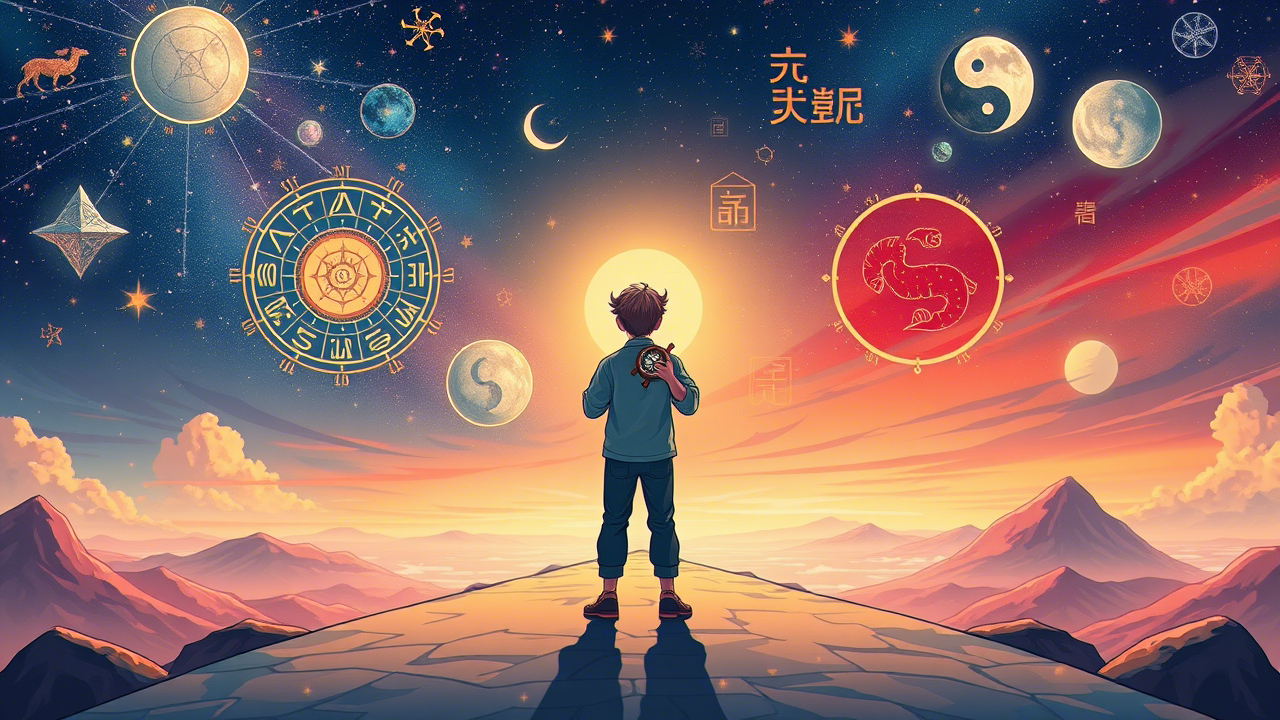
Its emphasis on planetary movements and geometric aspects offers concrete tools for navigating life’s transitions and challenges. Conversely, Chinese astrology presents a more holistic, cyclical approach that emphasizes harmony, balance, and alignment with natural rhythms, making it particularly valuable for understanding long-term patterns and generational influences.
For those seeking immediate, actionable insights into personal characteristics and short-term opportunities, Western astrology’s detailed natal charts and transit analyses prove invaluable.
Its compatibility with modern psychological frameworks makes it especially accessible to Western audiences familiar with personality typing systems. Meanwhile, individuals interested in understanding broader life cycles, generational themes, and the interconnectedness of various life aspects might find Chinese astrology’s multi-layered approach more resonant.
The system’s emphasis on timing and strategic action aligns well with traditional Eastern philosophies of patience and adaptability.
Rather than viewing these systems as mutually exclusive, contemporary seekers might benefit from integrating their complementary strengths. Western astrology’s precision in identifying personal strengths and challenges could be enhanced by Chinese astrology’s wisdom regarding timing and environmental harmony.
Similarly, Chinese astrology’s broad perspective on life cycles could gain depth through Western astrology’s detailed analysis of individual psychological dynamics.
This integrative approach acknowledges that both systems, despite their differences, ultimately aim to help individuals navigate life’s complexities with greater awareness and purpose.
Ultimately, the choice between Western and Chinese astrology – or the decision to explore both – should be guided by personal resonance and practical application.
Those drawn to structured, analytical approaches may naturally gravitate toward Western astrology, while individuals seeking a more fluid, contextual understanding might prefer Chinese astrology.
Regardless of the chosen path, both systems offer valuable frameworks for self-discovery, personal growth, and meaningful engagement with life’s unfolding journey.

